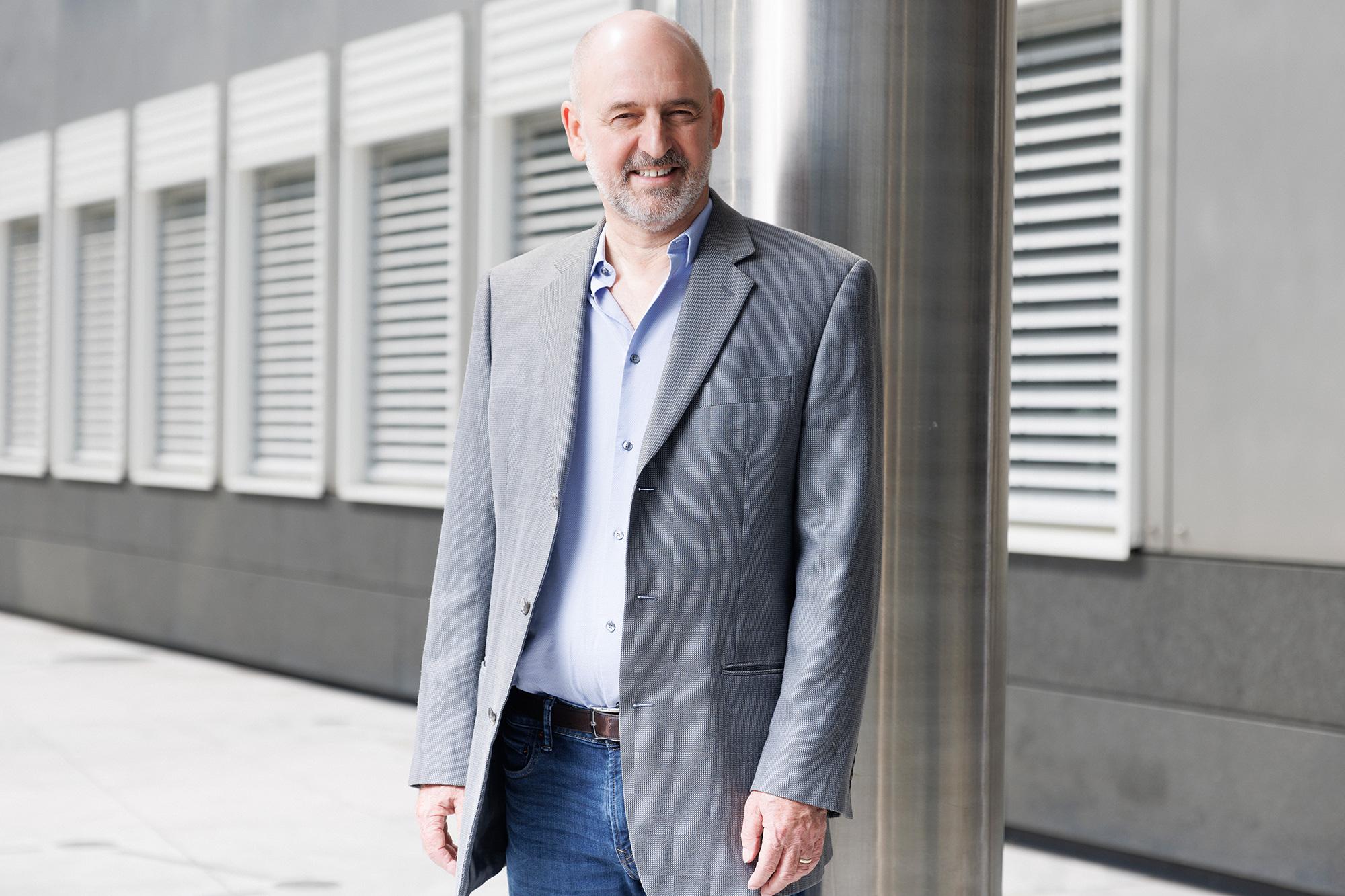The 2023 Marcel Benoist Prize is awarded to Ted Turlings

His work has been the basis for major progress in the understanding of plant-insect interactions. It has also opened up the way for developing new approaches in biological pest control.
The Swiss Science Prize Marcel Benoist 2023 is awarded to Ted Turlings, a biologist at the University of Neuchâtel. Through his work, he has illuminated complex biological processes, influenced environmental sciences globally and opened new paths towards pesticide-free sustainable farming through the biological control of pest insects. Ted Turlings has pursued highly innovative approaches and fundamentally contributed to our understanding of the role played by chemical signals in the communication among different species – otherwise known as ‘chemical ecology’.
Plants communicating with odours
Ted Turling’s research has developed upon his fundamental discovery in 1990 that plants can defend themselves against attack from pest insects by producing volatile compounds – odours – that will attract the predators of the harmful insects. The plants’ production of these odoriferous molecules is triggered by a substance in the saliva of the pest.
The work of Ted Turling’s team extends from basic to applied research, including the opening up of new possibilities for reducing pesticide use on crops by turning to natural predators of pests, an approach known as ‘biological control’. This is crucial for sustainable farming, which needs to protect crops from the harmful insects that destroy up to 40 percent of global yields.
For example, by detecting the presence of a plant’s defensive odours emitted during an attack by pests, farmers could be alerted before any damage to the crop is visible, thereby allowing phytosanitary products to be used in a more targeted way. Ted Turlings’ research also extends to selecting those plant varieties that produce the most compounds attracting beneficial insects or repelling harmful ones. Another avenue may be to synthesise the odorous molecules of a plant in order to attract a predator of harmful species before they can damage crops. Ted Turlings’ team is looking into these approaches in joint work with agricultural research institutes and non-governmental organisations, such as the Centre for Agricultural Bioscience International (CABI).
“This award is a great honour,” says Ted Turlings. “It acknowledges the work of many years spent alongside extremely competent colleagues and the type of research we are conducting. Today’s approach to food production is a major factor in climate change and environmental problems. We have what it takes to do better, and science has an important role to play.”
How plants attract insects to defend themselves
Ted Turlings’ work has explained in detail the mechanisms that are activated when a maize leaf is eaten by a caterpillar. There’s a compound in its saliva, known as ‘volicitin’, that stimulates receptors on the leaf. The receptors respond by engaging the plant’s production of volatile molecules: aromatic compounds and terpenoids. These molecules attract wasps that implant their eggs into the caterpillar’s body. The wasp larvae then eat the pest insect from the inside out. In short, the plant was able to protect itself by calling for help from its enemy’s enemy.
“I’m delighted to see this award going to Ted Turlings, a major figure in biological research,” says Didier Queloz, the president of the Marcel Benoist Foundation. “His fundamental research has led to spectacular results that have the potential for significant impact on society and particularly on sustainable farming.” The Swiss Science Prize Marcel Benoist will be awarded to Ted Turlings on 30 October 2023 in Berne at a joint ceremony organised with the Swiss Science Prize Latsis.
The 2023 laureate: Ted Turlings
Ted Turlings was born in the Netherlands and started his science career in the United States, including at the University of Florida and the United States Department of Agriculture. Since 1993, he has been working in Switzerland, first at ETH Zurich and since 1996 at the University of Neuchâtel. For four years, he led the National Centre of Competence in Research “Plant Survival in Natural and Agricultural Ecosystems”, which lasted from 2001 to 2013 with a budget of 74 million francs, and then took leadership of the Centre of Competence in Chemical Ecology at the University of Neuchâtel in 2014. He received the Delwart Prize from the Royal Academies for Science and the Arts of Belgium in 2008, the Silverstein-Simeone Award of the International Society of Chemical Ecology in 2015 and the Distinguished Scientist Award of the Entomological Society of America in 2022. In 2023, he was appointed president of the International Society of Chemical Ecology.
Swiss Science Prize Marcel Benoist
With prize money of 250,000 francs, the Marcel Benoist Prize is the highest reward in Swiss science. It is often described as the Swiss Nobel Prize, and 11 of its laureates have later been awarded the Nobel Prize. Each year, it is awarded to an exceptional scientist “who has made the most useful scientific invention, discovery or study, of particular relevance to all aspects of human life”. It has been awarded since 1920 by the Marcel Benoist Foundation within its mission to honour scientists whose work promotes excellence in Swiss research.
Since 2018, the Swiss National Science Foundation has conducted the nomination and selection process, as mandated by the Marcel Benoist Foundation. The Prize is awarded, on a rotating basis, to each of the three following fields of scientific research: biology and medicine (2023), humanities and social sciences (2024) and natural sciences (2025).
Links
- Picture of Ted Turlings © Daniel Rihs
- Marcel Benoist Foundation